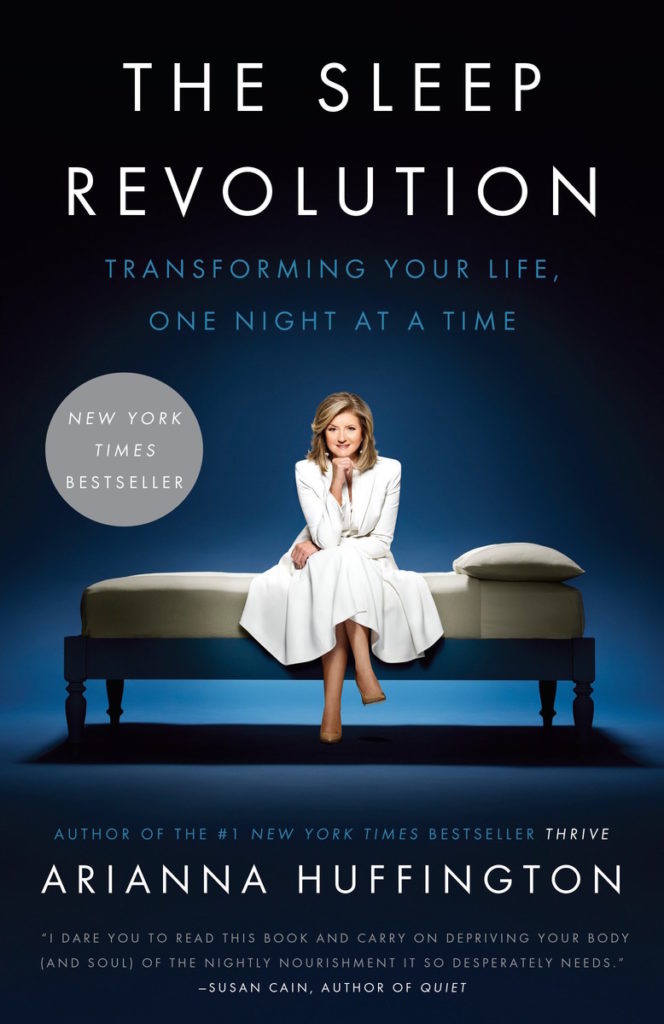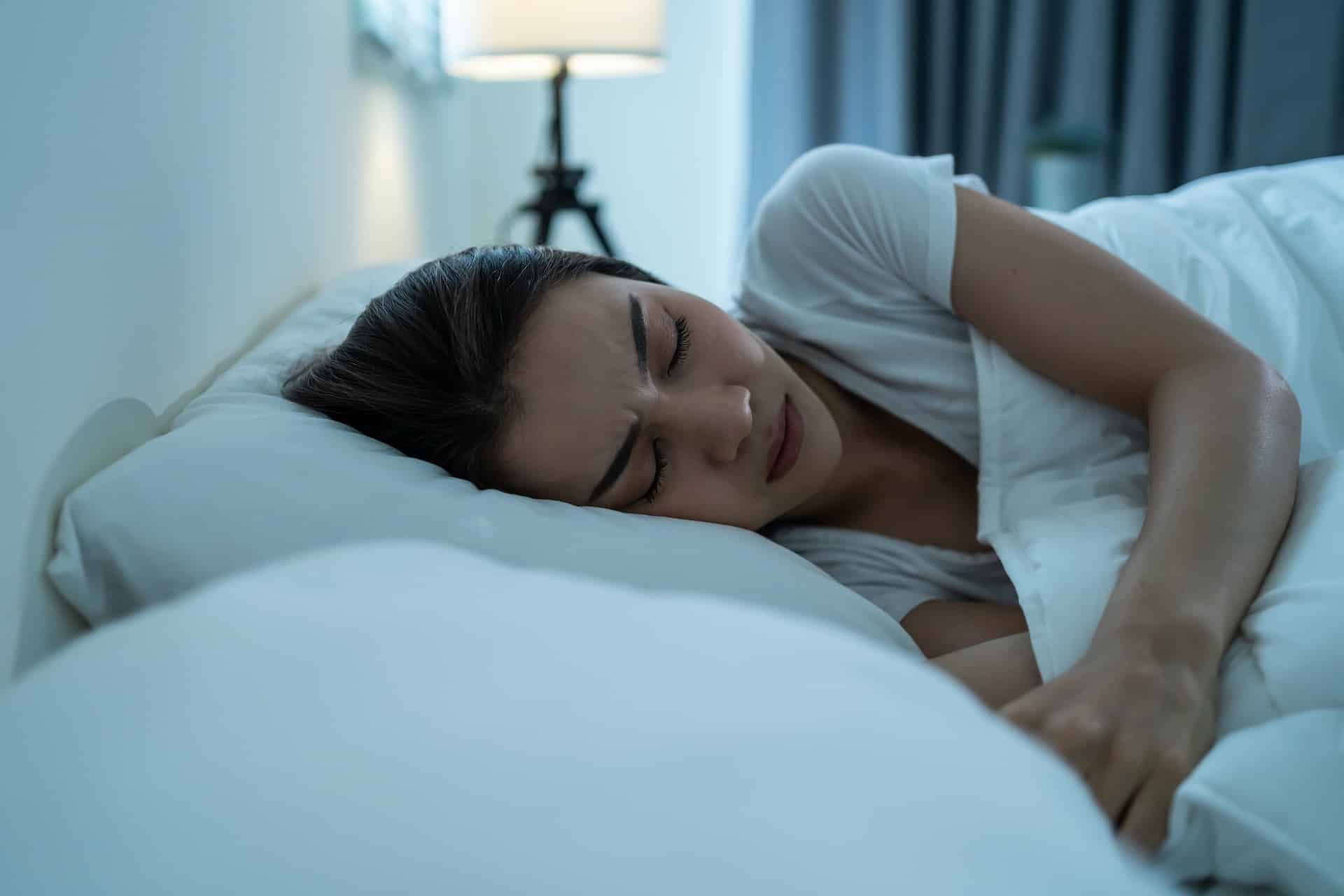Are Your Sleep Habits Messing with Your Mental Health?
Home » Sleep Deep » Sleep Science » Are Your Sleep Habits Messing with Your Mental Health?
Think getting enough sleep is just about making it through the workday with energy? In this excerpt from “The Sleep Revolution,” Arianna Huffington explains the research-backed connection between sleep and mental health. The title of the chapter says it all:
If You Value Your Brain, Get More Sleep
One of the most important recent findings is that sleep is essentially like bringing in the overnight cleaning crew to clear the toxic waste proteins that accumulate between brain cells during the day. Dr. Maiken Nedergaard, a codirector of the Center for Translational Neuromedicine at the University of Rochester, has studied the mechanism underlying these cleaning functions. “It’s like a dishwasher,” she said. Just as we wouldn’t eat off dirty dishes, why should we settle for going through the day with anything less than the full power and potential of our brains?
 What Nedergaard’s research on mice revealed is that the glymphatic system, essentially the brain’s plumbing system, functions at a much higher rate during sleep and plays a critical role in brain maintenance. As the mice slept, their brain cells actually shrank in size, creating more space for the spinal cord and brain fluid to flow throughout the brain and literally sweep away the toxic buildup associated with Alzheimer’s.
What Nedergaard’s research on mice revealed is that the glymphatic system, essentially the brain’s plumbing system, functions at a much higher rate during sleep and plays a critical role in brain maintenance. As the mice slept, their brain cells actually shrank in size, creating more space for the spinal cord and brain fluid to flow throughout the brain and literally sweep away the toxic buildup associated with Alzheimer’s.
Initial studies have shown that a similar process may occur in the human brain, a fact that could provide a major step forward in the prevention and treatment of dementia. This washing-away of waste chemicals and toxins happens only when we sleep— when we’re awake, the brain is too busy handling our body’s many functions.
RELATED: How Many Hours of Sleep Do You Really Need?
As Nedergaard put it, “The brain only has limited energy at its disposal, and it appears that it must choose between two different functional states— awake and aware or asleep and cleaning up. You can think of it like having a house party. You can either entertain the guests or clean up the house, but you can’t really do both at the same time.”
The consequences of not giving your brain this needed time to wash away toxins and waste chemicals go far beyond simple maintenance. According to Claire Sexton at the Oxford Centre for Functional Magnetic Resonance Imaging of the Brain, a lack of sleep over time is associated with a decline in the size of the brain itself. “We found,” she told me, “that poor sleep quality was associated with an increased rate of decline in brain volumes over three to five years. The question is whether poor sleep quality is a cause or an effect of changes in brain structure, or if the relationship is bidirectional.”
RELATED: 6 Smart Tips for Better Sleep
Beyond Toxins
One thing is clear: sleep is profoundly intertwined with virtually every aspect of brain health. Lack of sleep over time can lead to an irreversible loss of brain cells— yet another debunking of the myth that sleep debt can be made up. Researchers from the University of Pennsylvania and Peking University found in a joint study that sleep-deprived mice lost 25 percent of their LC neurons, which are involved in mental alertness, cognitive function, and attention span.
“In general, we’ve always assumed full recovery of cognition following short- and long- term sleep loss,” Dr. Sigrid Veasey, one of the study authors, said. “But some of the research in humans has shown that attention span and several other aspects of cognition may not normalize even with three days of recovery sleep, raising the question of lasting injury in the brain.” Up until recently, she added, “no one really thought that the brain could be irreversibly injured from sleep loss.”
RELATED: 5 Foods for Brain Health
A 2014 study from Duke-NUS Graduate Medical School found that the less we sleep as we grow older, the faster our brains age. In Alzheimer’s patients, the brain ventricles— chambers that hold cerebrospinal fluid—widen as the brain shrinks, and the grooves and folds of the brain become more pronounced, creating gaps. Researchers found that lack of sleep in older adults increased the pace of brain-ventricle enlargement and decreased cognitive performance, the very markers of brain aging associated with the onset of Alzheimer’s.
Two studies from Uppsala University in Sweden highlighted this further. One study showed that men who self-reported a sleep problem were one and a half times more likely to contract Alzheimer’s. The other revealed that just one night of sleep deprivation leads to an increase in two rare molecules in the brain (NSE and S-100B) that are signs of brain damage. (If you want to go to sleep now, feel free to put the book down!)
Sleep is also intricately connected with our general mental health. Researchers from Canada and France found that consistent early bedtimes may reduce the risk of mental illness. The underlying mechanism involves our ultradian rhythms—cycles within our body’s twenty-four- hour circadian day— which govern body temperature, hormone regulation, and appetite. These rhythms are regulated by dopamine, a neurotransmitter associated with the reward and pleasure parts of our brain. Sleep disturbances interfere with our dopamine levels, leading to an imbalance associated with bipolar and schizophrenic disorders.
Then there’s the matter of longevity. As of this writing, “Miss Susie,” Susannah Mushatt Jones of Brooklyn, New York, is the world’s oldest person at 116 years old. When asked for her secret by a reporter from the New York Daily News, she replied, “I sleep.” She then proceeded to demonstrate her nap style.
Reprinted from The Sleep Revolution. Copyright © 2017 by Arianna Huffington. Published by Harmony Books, an imprint of the Crown Publishing Group, a division of Penguin Random House LLC.
The Nutritious Life Editors are a team of healthy lifestyle enthusiasts who not only subscribe to — and live! — the 8 Pillars of a Nutritious Life, but also have access to some of the savviest thought leaders in the health and wellness space — including our founder and resident dietitian, Keri Glassman. From the hottest trends in wellness to the latest medical science, we stay on top of it all in order to deliver the info YOU need to live your most nutritious life.
DISCOVER MORE
RECENT ARTICLES

Want a sneak peek inside the program?
Get FREE access to some of the core training materials that make up our signature program – Become a Nutrition Coach.
Get Access"*" indicates required fields
 Sleep Deep
Sleep Deep












































































































































































































































































































































































































































































































































































































































































































































































































































































































































































































































































































































































































































































































































































































































